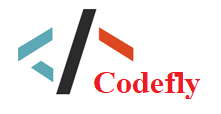1 <?xml version="1.0" encoding="utf-8"?>
2 <root>
3 <!--
4 Microsoft ResX Schema
5
6 Version 2.0
7
8 The primary goals of this format is to allow a simple XML format
9 that is mostly human readable. The generation and parsing of the
10 various data types are done through the TypeConverter classes
11 associated with the data types.
12
13 Example:
14
15 ... ado.net/XML headers & schema ...
16 <resheader name="resmimetype">text/microsoft-resx</resheader>
17 <resheader name="version">2.0</resheader>
18 <resheader name="reader">System.Resources.ResXResourceReader, System.Windows.Forms, ...</resheader>
19 <resheader name="writer">System.Resources.ResXResourceWriter, System.Windows.Forms, ...</resheader>
20 <data name="Name1"><value>this is my long string</value><comment>this is a comment</comment></data>
21 <data name="Color1" type="System.Drawing.Color, System.Drawing">Blue</data>
22 <data name="Bitmap1" mimetype="application/x-microsoft.net.object.binary.base64">
23 <value>[base64 mime encoded serialized .NET Framework object]</value>
24 </data>
25 <data name="Icon1" type="System.Drawing.Icon, System.Drawing" mimetype="application/x-microsoft.net.object.bytearray.base64">
26 <value>[base64 mime encoded string representing a byte array form of the .NET Framework object]</value>
27 <comment>This is a comment</comment>
28 </data>
29
30 There are any number of "resheader" rows that contain simple
31 name/value pairs.
32
33 Each data row contains a name, and value. The row also contains a
34 type or mimetype. Type corresponds to a .NET class that support
35 text/value conversion through the TypeConverter architecture.
36 Classes that don't support this are serialized and stored with the
37 mimetype set.
38
39 The mimetype is used for serialized objects, and tells the
40 ResXResourceReader how to depersist the object. This is currently not
41 extensible. For a given mimetype the value must be set accordingly:
42
43 Note - application/x-microsoft.net.object.binary.base64 is the format
44 that the ResXResourceWriter will generate, however the reader can
45 read any of the formats listed below.
46
47 mimetype: application/x-microsoft.net.object.binary.base64
48 value : The object must be serialized with
49 : System.Runtime.Serialization.Formatters.Binary.BinaryFormatter
50 : and then encoded with base64 encoding.
51
52 mimetype: application/x-microsoft.net.object.soap.base64
53 value : The object must be serialized with
54 : System.Runtime.Serialization.Formatters.Soap.SoapFormatter
55 : and then encoded with base64 encoding.
56
57 mimetype: application/x-microsoft.net.object.bytearray.base64
58 value : The object must be serialized into a byte array
59 : using a System.ComponentModel.TypeConverter
60 : and then encoded with base64 encoding.
61 -->
62 <xsd:schema id="root" xmlns="" xmlns:xsd="http://www.w3.org/2001/XMLSchema" xmlns:msdata="urn:schemas-microsoft-com:xml-msdata">
63 <xsd:import namespace="http://www.w3.org/XML/1998/namespace" />
64 <xsd:element name="root" msdata:IsDataSet="true">
65 <xsd:complexType>
66 <xsd:choice maxOccurs="unbounded">
67 <xsd:element name="metadata">
68 <xsd:complexType>
69 <xsd:sequence>
70 <xsd:element name="value" type="xsd:string" minOccurs="0" />
71 </xsd:sequence>
72 <xsd:attribute name="name" use="required" type="xsd:string" />
73 <xsd:attribute name="type" type="xsd:string" />
74 <xsd:attribute name="mimetype" type="xsd:string" />
75 <xsd:attribute ref="xml:space" />
76 </xsd:complexType>
77 </xsd:element>
78 <xsd:element name="assembly">
79 <xsd:complexType>
80 <xsd:attribute name="alias" type="xsd:string" />
81 <xsd:attribute name="name" type="xsd:string" />
82 </xsd:complexType>
83 </xsd:element>
84 <xsd:element name="data">
85 <xsd:complexType>
86 <xsd:sequence>
87 <xsd:element name="value" type="xsd:string" minOccurs="0" msdata:Ordinal="1" />
88 <xsd:element name="comment" type="xsd:string" minOccurs="0" msdata:Ordinal="2" />
89 </xsd:sequence>
90 <xsd:attribute name="name" type="xsd:string" use="required" msdata:Ordinal="1" />
91 <xsd:attribute name="type" type="xsd:string" msdata:Ordinal="3" />
92 <xsd:attribute name="mimetype" type="xsd:string" msdata:Ordinal="4" />
93 <xsd:attribute ref="xml:space" />
94 </xsd:complexType>
95 </xsd:element>
96 <xsd:element name="resheader">
97 <xsd:complexType>
98 <xsd:sequence>
99 <xsd:element name="value" type="xsd:string" minOccurs="0" msdata:Ordinal="1" />
100 </xsd:sequence>
101 <xsd:attribute name="name" type="xsd:string" use="required" />
102 </xsd:complexType>
103 </xsd:element>
104 </xsd:choice>
105 </xsd:complexType>
106 </xsd:element>
107 </xsd:schema>
108 <resheader name="resmimetype">
109 <value>text/microsoft-resx</value>
110 </resheader>
111 <resheader name="version">
112 <value>2.0</value>
113 </resheader>
114 <resheader name="reader">
115 <value>System.Resources.ResXResourceReader, System.Windows.Forms, Version=2.0.0.0, Culture=neutral, PublicKeyToken=b77a5c561934e089</value>
116 </resheader>
117 <resheader name="writer">
118 <value>System.Resources.ResXResourceWriter, System.Windows.Forms, Version=2.0.0.0, Culture=neutral, PublicKeyToken=b77a5c561934e089</value>
119 </resheader>
120 <data name="TextBox2.Text" xml:space="preserve">
121 <value>For Lan Base Connection, if your sql server setup is on mix mode, just fill up the
122 [IP Address] = where you want to connect to, if you are the server which mean other computers will connect to you, its not require to fill this because your the server, other wise if happen that you will connect to someone else or you are the client, you need to specify the ip address which where the database is attached
123
124 [ Server name ] = SQL Server Name of the Host where the database is attached
125
126 [ User name ] = 'sa'
127
128 [ Password ] = password of the sql server which you want to connect</value>
129 </data>
130 <data name="TextBox1.Text" xml:space="preserve">
131 <value>For standalone connection, if your sql server setup is on Windows Authentication just fill up the [Server Name] your Server Name is Equivalent to your SQL SERVER, located at the Prompt Login of SQL SERVER</value>
132 </data>
133 </root>
